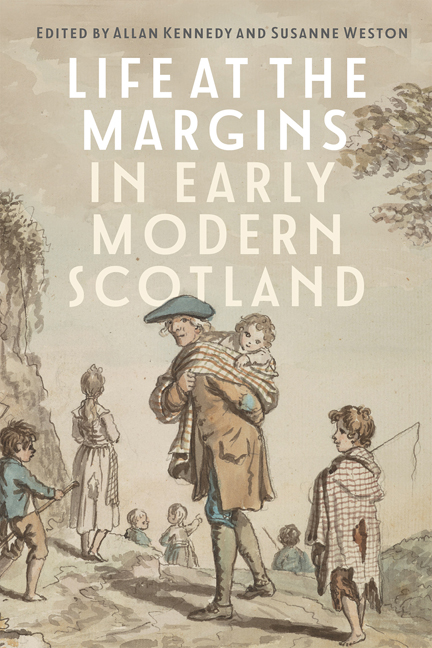10 - Migrants, Itinerants, and the Marginality of Mobility in Seventeenth-Century Scotland
Published online by Cambridge University Press: 08 May 2024
Summary
In August 1636, Henry Ghretsone, a skipper and ‘stranger’, complained that, while he had previously ‘belived that the Scottes had bene gude people’, he had now changed his mind. His volte-face resulted from an incident that had occurred while he was sailing towards Dumbarton from Glasgow. Another boat, carrying many heavily-armed men, attacked him, shooting multiple holes in his sails before taking him captive. Having dragged him ashore, they demanded customs dues that he could not afford to pay, and he was accordingly held in prison for a number of days until somebody else agreed to pay the fees on his behalf. Such treatment of strangers, Ghretsone protested, ‘will do wholl Scotland no gude’. Ghretsone's experience spoke to the fraught and uncertain place of the ‘incomer’ in early modern society, a society rooted in the ideal that people ought to live in settled, relatively non-porous communities. This theoretical standard, however, did not match reality: early modern people in fact moved around readily and frequently, as a substantial body of scholarship now readily attests. Within a specifically Scottish context, however, migration as a research theme remains unevenly developed. While there is a very considerable stock of work elucidating the experiences of Scots moving to other parts of the globe, we remain surprisingly under-informed about mobility within and to Scotland itself, especially before 1700.
Our lack of detailed knowledge notwithstanding, there is a general recognition within the scholarship that ‘strangers’, as they were typically termed, whether in the form of vagrants, economic migrants, professional people, or foreign visitors like Henry Ghretsone, were very often marginalised figures, their activities subject to significant restriction and their socio-economic opportunities curtailed – as, indeed, has tended to be the general experience of ‘outsiders’ in other geographical and temporal contexts. Building on these tentative foundations, this chapter seeks to interrogate the basis and nature of migrants’ social marginality in early modern Scotland, focusing especially on seventeenth-century evidence. It begins by discussing the various challenges that migrants and immigrants were thought to pose for their host communities, before moving on to survey the mechanisms – some formal, some not – by which such individuals were confined to the fringes. It then assesses how, and why, this marginal status might be challenged or mitigated.
- Type
- Chapter
- Information
- Life at the Margins in Early Modern Scotland , pp. 163 - 178Publisher: Boydell & BrewerPrint publication year: 2024

